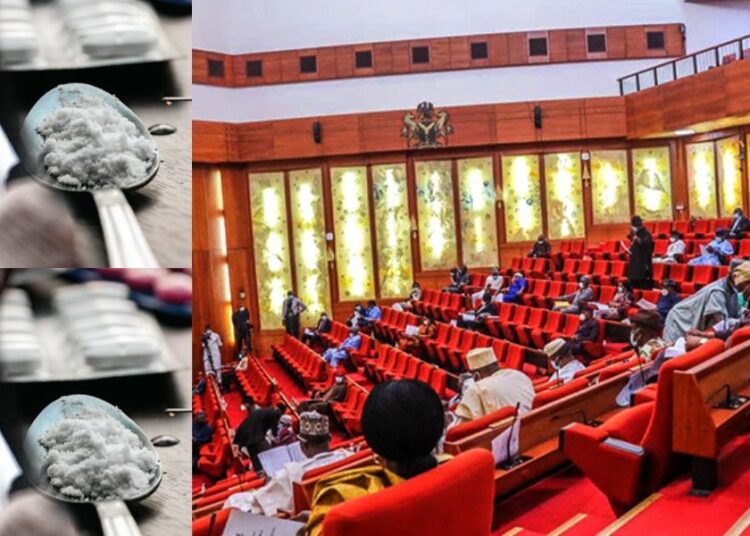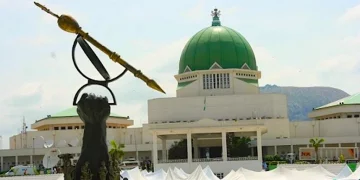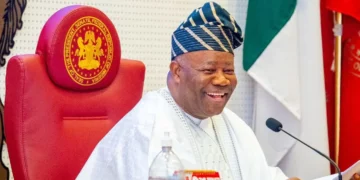Recently, claims of drug abuse by serving lawmakers have been insightful. The allegations were instructive as they came from what could pass as authoritative voices.
Senator Kawu Sumaila, in one of his comments, alleged that some of his colleagues were abusing hard drugs. He said politicians allowed the use of hard drugs in their homes and offices, claiming that senior politicians support drug dealers.
Sumaila, who represents Kano South, made the allegation during plenary while contributing to the debate on a Bill to establish the National Institute for Drug Awareness and Rehabilitation.
He further recommended that politicians undergo drug tests before they contest elections and assume political positions. Although this recommendation is not original to him, it has not been taken seriously.
Not long after, National Drug Law Enforcement Agency (NDLEA), made its own revelation. It was, however, specific in its disclosure.
Responding to a claim by Senator Lola Ashiru against it, the NDLEA, claimed that it raided the senator’s house severally and found it to be a drug joint, leading to the arrest of his aides.
The senator, who represents Kwara South, accused the NDLEA of compromise and corruption, claiming that what the agency said was borne out of vendetta and malice, not national interest.
Interestingly, in our view, while Senator Sumaila’s claim remains generic and NDLEA’s revelation on the Kwara senator appears curious as it was intended to hit back at the lawmaker, the issue remains that no top politician has been arrested on account of drug trafficking.
As much as these claims remain allegations, it is embarrassing that they could be made about persons who should make laws to govern the country. It is concerning that such claims were made about persons in an arm of government that give democracy its essence.
Although reports of massive busts are recorded by the NDLEA, the most high-profile arrest was the suspended Deputy Commissioner of Police, Abba Kyari, in February 2022 by the NDLEA for alleged involvement with an international drug cartel.
Kyari, along with four members of the Police Intelligence Response Team—Sunday Ubia, Bawa James, Simon Agirigba, and John Nuhu—was arraigned on March 7, 2022.
Nevertheless, the use of narcotics in Nigeria is not new. What is worrisome is the alleged direct involvement of the top political elite in this endemic menace, which has impacted the younger segment of the population badly.
The situation is so pathetic that the NDLEA chairman, Brig. General Mohamed Buba Marwa (Retd), has repeatedly called for a test on every person seeking to occupy elective political office. He first made the call in 2021 and later in 2022.
But why does this allegation about drug abuse by politicians, especially lawmakers, matter? How much of it is responsible for the quality of decision-making and governance in general?
While it would be difficult to situate the place of drug abuse in governance, there is no denying that drug abuse by elected political officeholders is a serious concern that can significantly impact the quality of governance.
When leaders are under the influence of substances, their decision-making abilities are compromised, putting the welfare of citizens at risk.
Effective governance requires sound judgment, clear thinking, and a strong sense of responsibility. Drug abuse can impair these essential qualities, leading to poor policy decisions and ineffective leadership.
Moreover, leaders struggling with addiction may prioritise their personal interests over the needs of their constituents, eroding public trust and undermining the legitimacy of institutions.
The consequences of drug abuse by elected officials can be far-reaching and devastating, ranging from inadequate healthcare policies and decisions, unsound economic decisions that jeopardise the financial well-being of citizens and the nation, and compromised law enforcement and judicial systems that fail to uphold justice and protect citizens’ rights.
As a newspaper, we support the call for more serious attention to this malaise, especially among the political elite.
We solicit mandatory health screenings for officials to identify potential addiction issues. We also believe that strengthened oversight mechanisms should ensure that officials’ actions align with public interests.
Of course, the need for educating citizens about the risks of drug abuse among leaders and promoting civic engagement to demand better governance cannot be overemphasised.
The alleged use of illicit substances by elected political officeholders is of grave concern and demands attention and action. By understanding the impact on governance and citizens’ lives, we can work towards creating more accountable and responsible leadership. Prioritising transparency, accountability, and public health is crucial to ensuring that leaders serve the people, not their personal interests.
In the meantime, we appeal to the NDLEA to follow up the allegations against the legislator steadfastly so as to get to the core of it regarding the veracity or otherwise of anyone’s involvement. It is in the overall public interest to do so.





